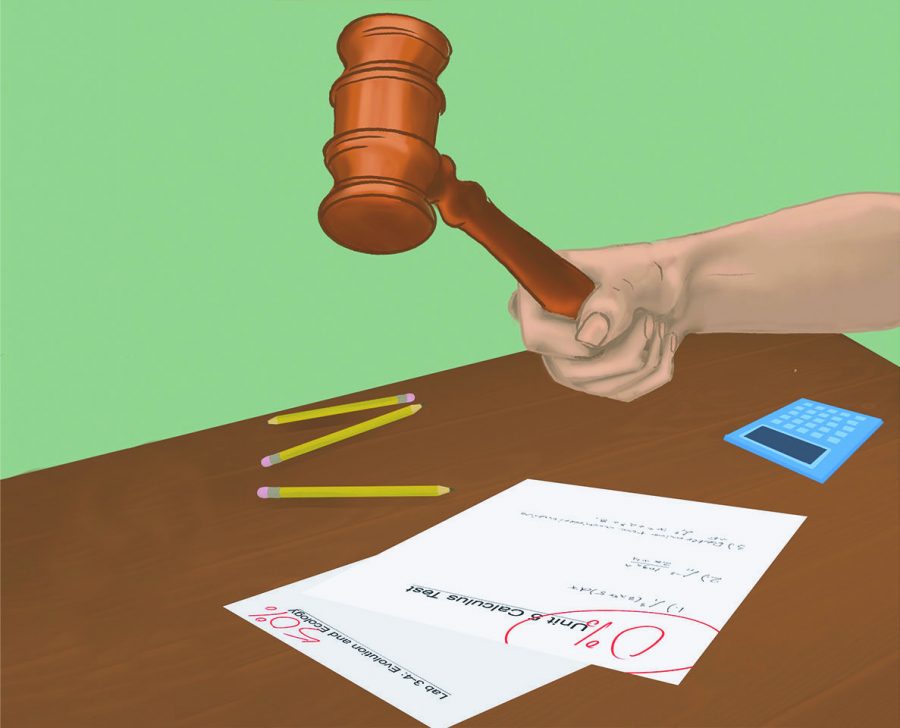Honor board reports increases in cheating
Evie De Rubertis ’21/Chronicle
A recent Prefect Council email detailed 24 specific cases, 23 of which involved cheating and academic dishonesty.
February 3, 2021
The Prefect Council sent a quarterly update email to upper school students about recent Honor Board cases to address academic dishonesty and remind students of the school’s academic policies Jan. 19.
The email detailed 24 specific cases, 23 of which involved cheating and academic dishonesty. According to the email, these cases represented only some of the cases which occurred during the second quarter, and the total number of cases this school year has surpassed twice that of last year’s.
Head of Upper School Beth Slattery interpreted the rise in cheating as a side effect of online learning.
“I think it’s tempting to students when information is right there, and they perceive that no one is watching,” Slattery said. “I also think remote learning is more challenging for many students, so they feel the need to cheat to keep up with how they performed in person.”
Head Prefect Cleo Maloney ’21 agreed with Slattery on the challenging nature of online school. She cited increased distractions and lack of motivation as factors that create a difficult learning environment. Maloney said the excessive student workload increases the likelihood of cheating.
“Cheating happens when you feel stressed and overwhelmed, and I think there are very few people who don’t feel that way right now,” Maloney said. “Being a Prefect has made me realize how strenuous the workload at our school can be, and how that, in turn, causes cheating.”
Some students and Prefects are aware of the cheating done by their classmates.
Craig* ’21 said he has not cheated during the virtual school year, but he acknowledged that many of his friends do because online school provides more opportunities for it. He believes the main contributor to the rise in cheating is students’ lack of preparation for assessments and disagreed with notions that current circumstances might factor in.
“I think that the reason why most kids would cheat [on an exam] or feel the need to do so is when they don’t know any of the information and don’t want to do poorly,” Craig said. “[This happens] especially with seniors, given the significance of grades in the first semester and the pressure of getting into college.”
Maloney said she believes that reducing student stress is key to decreasing cheating rates. Both Maloney and Slattery said students who cheat can grow from their actions and that the Honor Board is a vital tool to help guide students in the right direction.
“At the end of the day, we all make mistakes, and that is both normal and expected,” Maloney said. “In my opinion, the fundamental purpose of the Honor Board is to be rehabilitative, and so as a Head Prefect, the potential for positive growth is always the frame I view students through.”
*Name has been changed
































